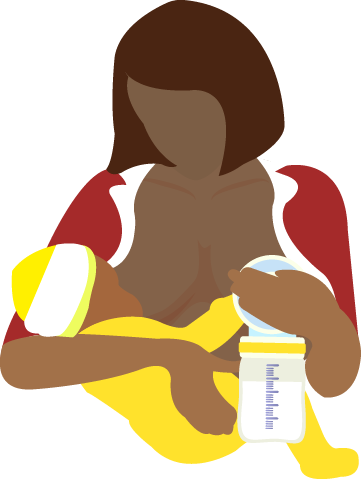Families and children in difficult circumstances require special attention and practical support. Wherever possible, mothers and babies should remain together and get the support they need to exercise the most appropriate feeding option available. Breastfeeding remains the preferred mode of infant feeding in almost all difficult situations, for instance:
low-birth-weight or premature infants;
mothers living with HIV in settings where mortality due to diarrhoea, pneumonia and malnutrition remain prevalent;
adolescent mothers;
infants and young children who are malnourished; and
families suffering the consequences of complex emergencies.
HIV and infant feeding
Breastfeeding, and especially early and exclusive breastfeeding, is one of the most significant ways to improve infant survival rates. While HIV can pass from a mother to her child during pregnancy, labour or delivery, and also through breast-milk, the evidence on HIV and infant feeding shows that giving antiretroviral treatment (ART) to mothers living with HIV significantly reduces the risk of transmission through breastfeeding and also improves her health.
WHO now recommends that all people living with HIV, including pregnant women and lactating mothers living with HIV, take ART for life from when they first learn their infection status.
Mothers living in settings where morbidity and mortality due to diarrhoea, pneumonia and malnutrition are prevalent and national health authorities endorse breastfeeding should exclusively breastfeed their babies for 6 months, then introduce appropriate complementary foods and continue breastfeeding up to at least the child’s first birthday.
Source: WHO




